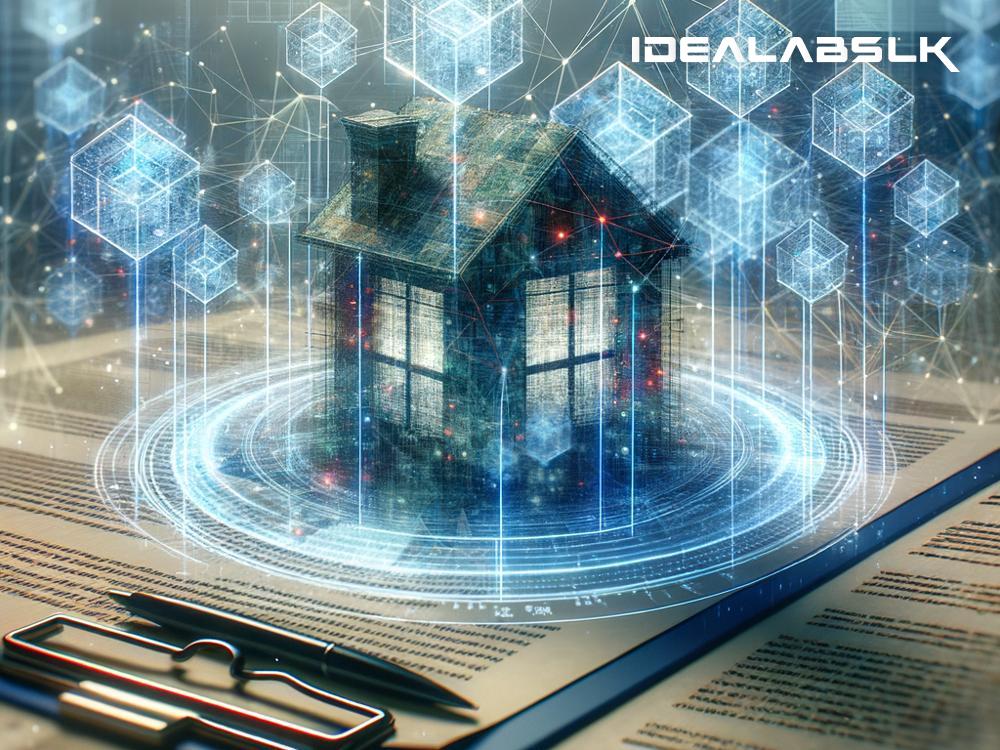Blockchain Solutions: A Game Changer for Real Estate Property Disputes
In the world of real estate, disputes can be as common as finding a 'For Sale' sign on a lawn. Whether it's about ownership, boundaries, or contract terms, disputes are usually complicated and can drag on for what feels like forever. But what if there was a modern solution that could simplify these issues and make real estate disputes less of a headache? Enter blockchain technology – a game changer that's stepping into the realm of real estate with promising solutions for these age-old problems.
What is Blockchain, Anyway?
Let's break it down into simple terms. Imagine a digital ledger that is totally transparent and incredibly secure, where all transactions are recorded. This isn't a ledger kept in a dusty old book or a single digital file on a lawyer's computer. It's distributed across a network of computers around the world, making it nearly impossible to tamper with. Each "block" of data is connected to the previous one, creating a "chain" – hence the name, blockchain.
The Old-School Real Estate Headaches
Traditionally, when you buy or sell property, there's a lot of paperwork involved. This paperwork is supposed to keep track of who owns what, but sometimes things get lost in translation. Maybe documents get misplaced, or there are mistakes in the records. And sometimes, unfortunately, people intentionally try to manipulate or forge documents. This can lead to disputes that take a lot of time, money, and patience to resolve.
How Can Blockchain Help?
Blockchain's strength lies in its transparency and security, making it an ideal solution for many of the issues that lead to real estate disputes. Here's how:
1. Clear Ownership Records
With blockchain, every transaction related to a piece of property can be recorded in a way that's permanent and easy to verify. This means that at any given moment, you can see a clear history of who has owned (and currently owns) the property. This kind of transparency can significantly reduce the disputes that arise from unclear ownership.
2. Secure Transactions
The technology's secure, unalterable ledger means that once a transaction is recorded on the blockchain, it cannot be changed or deleted. This cuts down on the risk of fraud significantly, as forging documents or tampering with records becomes nearly impossible.
3. Smart Contracts
Smart contracts are self-executing contracts with the terms of the agreement directly written into lines of code. In real estate, this could mean that the transfer of a property only happens if certain conditions are met, and because it's all done on the blockchain, it's transparent and irrevocable. This can eliminate disputes about whether conditions of a sale have been met.
4. Streamlining Processes
The use of blockchain can make the whole process of buying or selling property much smoother and quicker. By having all records and transactions digital, secure, and easily accessible, a lot of the bureaucratic red tape can be cut, reducing the time and cost associated with real estate transactions and therefore, the potential for disputes stemming from protracted processes.
Real-World Applications and The Future
Around the world, some countries and companies are experimenting with blockchain in the real estate sector. For example, Sweden has been testing the use of blockchain for land registry purposes. These initiatives are still in early stages, but they're showing promising results in reducing fraud and making property transactions smoother and more transparent.
The road to widespread blockchain adoption in real estate is not without its challenges. Issues such as technological barriers, regulatory hurdles, and the need for a significant shift in how real estate transactions are traditionally conducted all stand in the way. However, as technology advances and more stakeholders see the potential benefits, these issues are likely to be addressed.
In essence, blockchain technology holds the key to transforming the real estate sector by reducing disputes, making transactions more secure, and simplifying the buying and selling process. While it might take some time to fully realize this potential, the future of real estate could be significantly more transparent and dispute-free, thanks to blockchain.

